The quest for better future mobility still faces hurdles as a new survey reveals that 1 in 4 global citizens are not ready to embrace eco-friendly transportation choices while challenges still remain for certain parts of the globe. 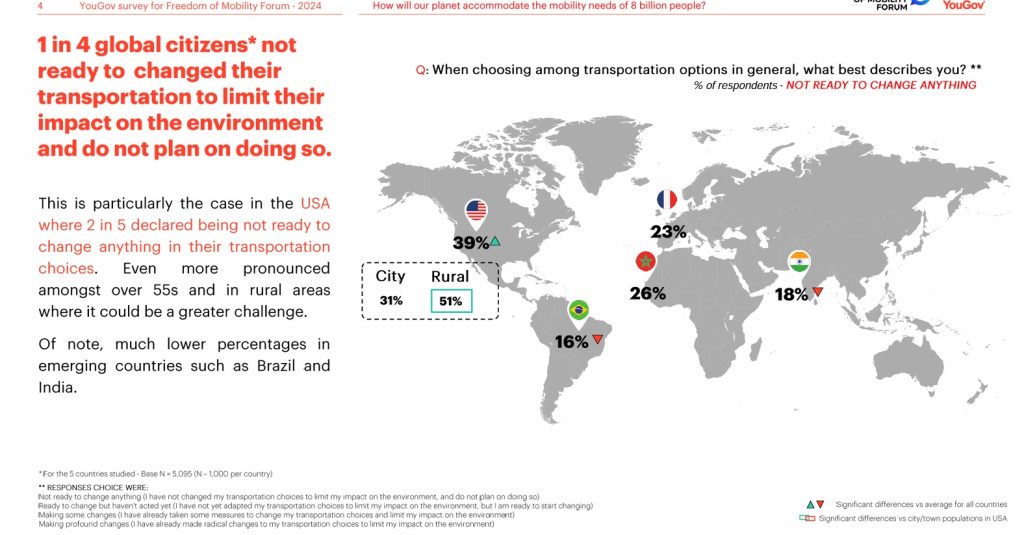
Future mobility has been a hot topic in the automotive industry in recent years with many companies promising to create innovative solutions that will help improve the availability of mobility technology to the broader global market.
However, a new survey from the data research firm YouGov appears to suggest that there are still some hurdles to overcome in this quest for change and that it might take longer than some folks have initially anticipated.
Majority of consumers not ready to embrace mobility solutions
A key takeaway from the survey which was unveiled during Stellantis’s second annual Freedom of Mobility panel is that the bulk of global consumers are not ready to embrace eco-friendly mobility solutions with 1 in 4 of those polled stating that they are not ready to make the switch yet. That’s especially true in the U.S. where half the respondents in rural areas stated that they were not ready to change anything about their current lifestyle.
Part of this is due to these areas tending to not only be poorer parts of the country but also regions where mass transit is not readily available. The survey also stated that while 3 in 4 people are preparing to adopt greener mobility options, less than 10% have made profound changes to their lifestyles by embracing alternative mobility solutions.
This is due to many factors but affordability of EVs and other alternative-fueled vehicles remains a key reason with average pricing for these vehicles still being out of reach for many mainstream consumers despite government credits and incentives. Companies and politicians are working on addressing this issue but for now, it remains a formidable obstacle for most vehicle buyers.
Global focus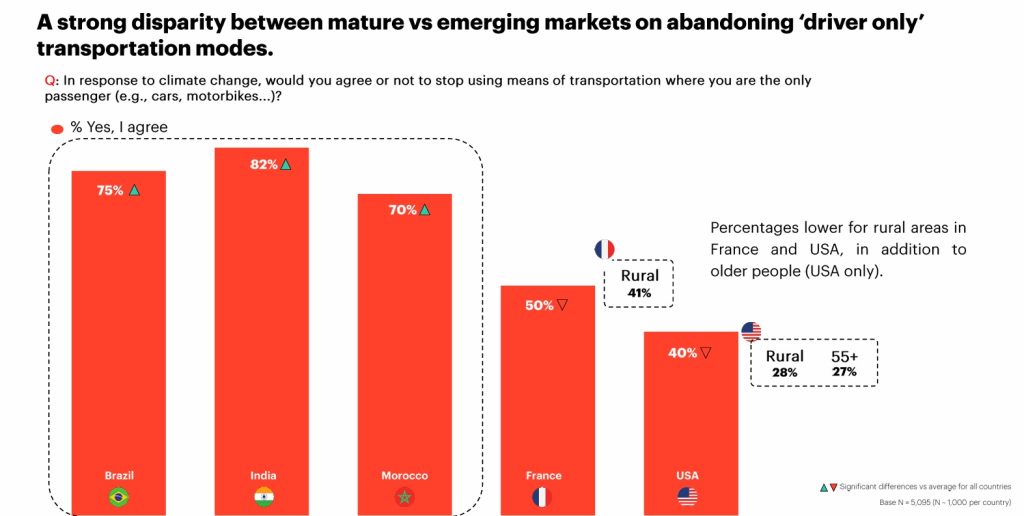
The survey also focused on global markets with the study also including Brazil, Morocco, France and India along with the U.S. In these markets, the study revealed that 6 in 10 citizens are ready to abandon “driver only” transportation models but this enthusiasm varied among regions with India, Brazil, and Morocco spearheading this sentiment the most.
These three countries have a higher percentage of their population that lives in poverty and as a result, these countries have had to invest more in mass transit to help give these citizens access to transportation that allows them to get where they need to go without worrying about whether they can afford to buy a traditional car or not.
That’s in sharp contrast to mature markets where citizens in the U.S. and France are less willing to give up the “driver only” transportation model with fewer citizens in these two countries willing to use mass transit options for their commuting needs. The exception to this is in bustling urban centers like New York, Chicago, and Paris where mass transportation is more prevalent due to the unique traffic environments in these areas as well as regulations encouraging the use of mass transit.
A generational shift is occurring
The survey also revealed that a generational shift is occurring when it comes to accepting mass transit and other mobility solutions with Gen Z and Millennials in all five countries saying that they are more open to changing their habits in regards to mobility.
Baby boomers and Gen X citizens are less willing to make the same changes, but an exception was noted in Brazil, Morocco, and India where these two groups were more willing to change their habits than their younger counterparts.
The strong showing by millennial and Gen Z respondents highlights the fact that they grew up with these mobility solutions and as a result, they have had more time to adapt and learn about what’s available to them in the mobility sector.
More News Stories
- EV Owners Increasingly Counting on DC Fast Chargers, Survey Says
- Searching for Fossil Fuels Two Scientists May Help Make the “Hydrogen Economy” A Reality Instead
- Consumers Changing Preferences Impacting Auto Industry in 2024
Influencing factors for change vary depending on region 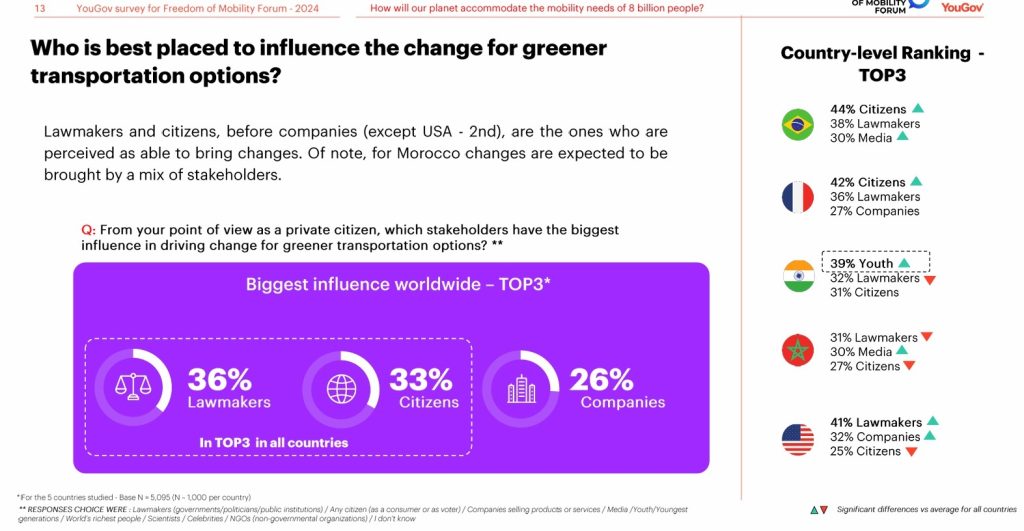
The survey also asked respondents who was best placed to influence change among the population. In four of the countries surveyed, respondents said that lawmakers and citizens are in the best position to encourage change towards mass transit and other mobility solutions.
The U.S. emerged as the lone outlier in the survey with respondents here saying that lawmakers and companies have the strongest influence with citizens feeling left out of the process. Many of these respondents are from younger generations that feel they have ideas that can help make change happen faster, but often feel that their input is not taken seriously by political and industry leaders with many of them coming from older generations.
There’s always room for improvement, but until young people feel they are more involved in the process of making mass adoption of mobility solutions a reality, hurdles and obstacles will remain.

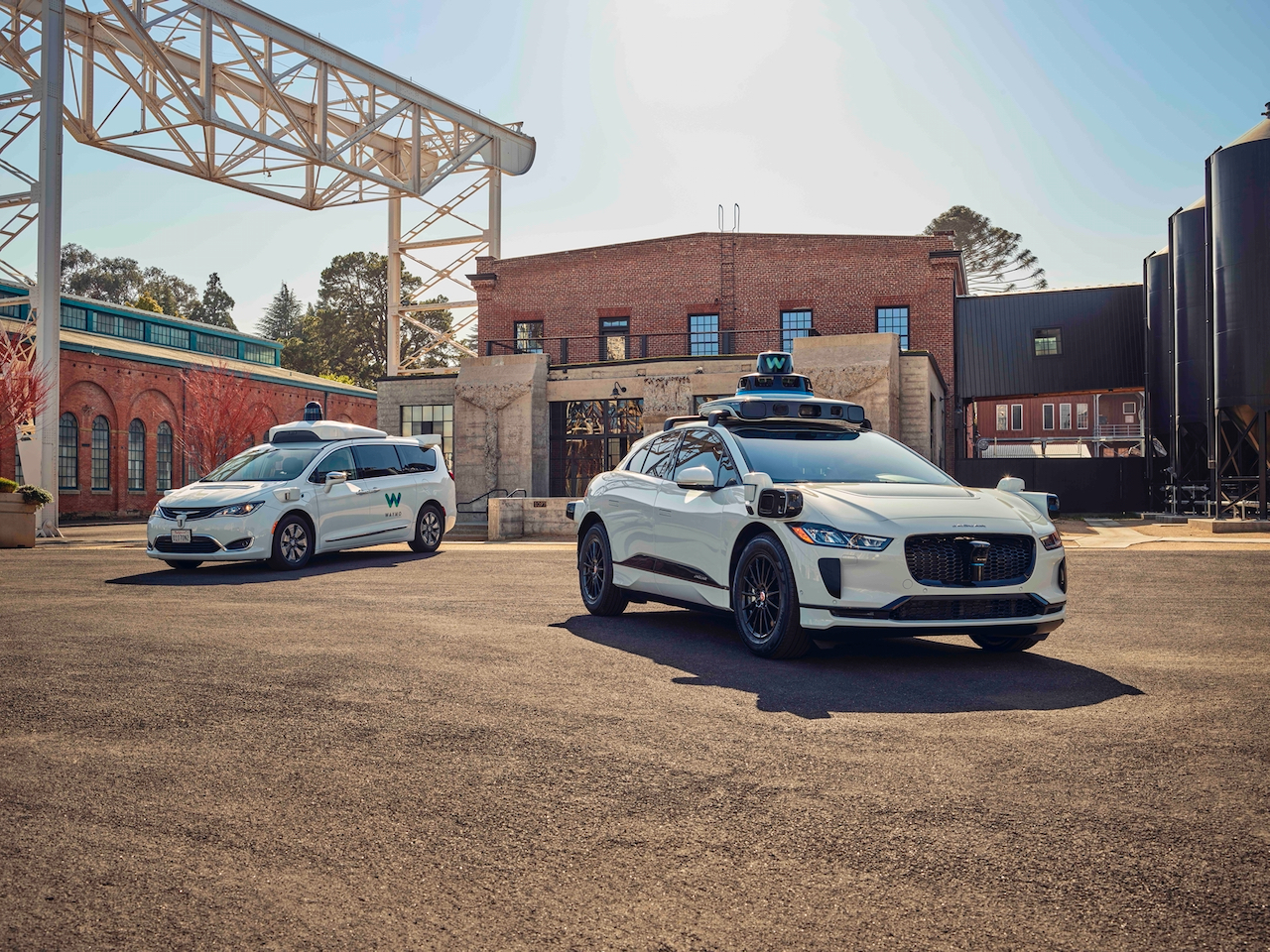
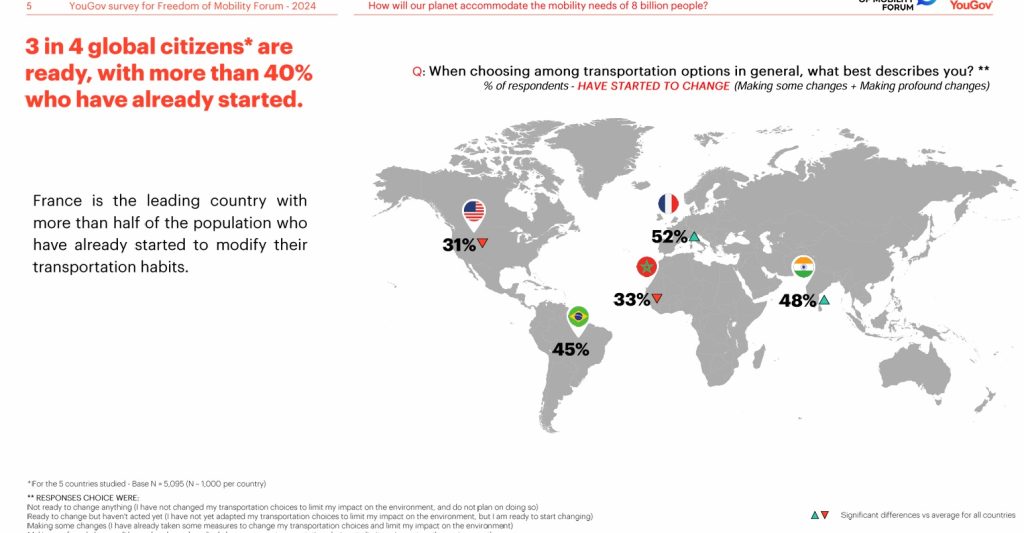
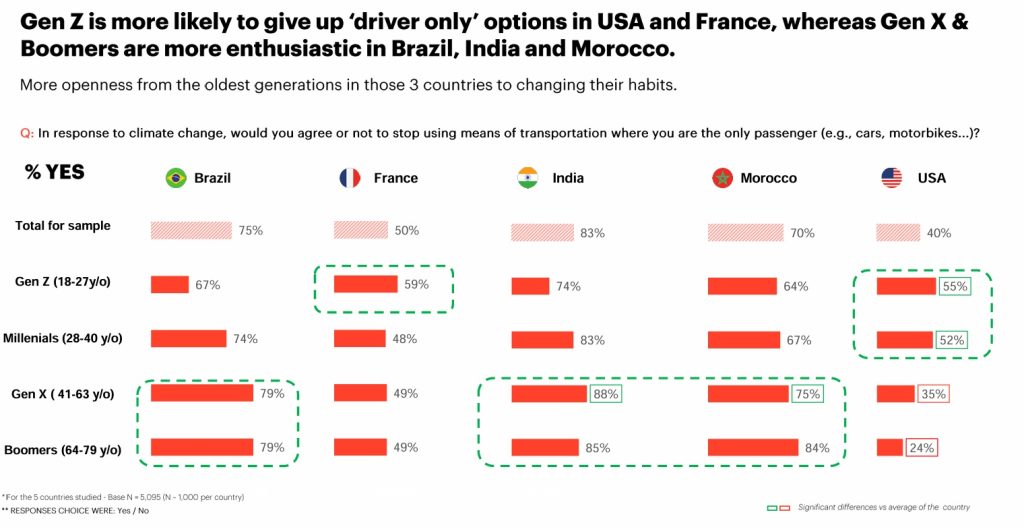


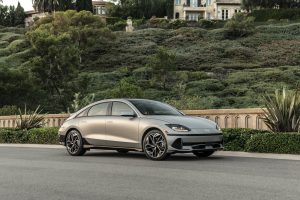
0 Comments